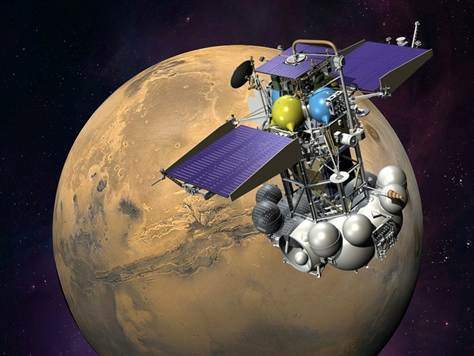Russia was understandably upset and perhaps more than a little embarrassed when the Phobos-Grunt probe – slated to explore a Martian moon – failed to escape Earth’s orbit and crashed into the ocean.
Some individuals in the Russian space community hinted that a radar station in Alaska could have caused interference that ultimately damaged the probe.

Of course, Russia hasn’t officially accused the US or any other countries of tampering with their probe. However, certain officials noted it was quite curious that a number of spacecraft were lost at a point where ground control couldn’t receive telemetry or communications.
So it comes as little surprise that
Russia will now officially attempt to determine if a radar station manned by the US could have inadvertently interfered with the Phobos-Grunt probe.
The catch for Moscow? Russian space experts argue that the claims of US radar interference with the Phobos-Grunt is quite unlikely.
Nevertheless, Russia State news agency RIA Novosti quoted the former head of Russian space agency Roscosmos, Yury Koptev, as saying that investigators from Russia will conduct tests to see if the US radar could have interfered.
“The results of the experiment will allow us to prove or dismiss the possibility of the radar’s impact,” Koptev claimed.
As noted above, Russian scientists scoff at the suggestion that US satellite stations could have damaged the probe and caused it to fail. For example, Alexander Zakharov from the Russian Academy of Sciences and Space Research Institute (the very place where the Phobos-grunt probe was researched and developed), says the US had absolutely nothing to do with the failure.
Zakharov said, “Consider the power of the impact. I don’t think the Americans have radars capable of ensuring such power at such an altitude [about 200 kilometers].”
Zakharov figures that the theory of US interference is simply a smokescreen to cover up the mistakes of some people on the program. The scientist went so far as to call the suggestion of US radar interference “far-fetched.” He also recommended that the spacecraft be examined.
“You can come up with a lot of exotic reasons,” explained Zakharo. “But first you need to look at the apparatus itself, and there is a problem there.”
Meanwhile, Alan Stern, former associate administrator for science at NASA and now director of the Florida Space Institute at the University of Central Florida, said “the Russian Space Agency would do themselves and the future of Russian planetary exploration some good to look inside the project and the agency to find the cause of the Phobos-Ground mishap.”






